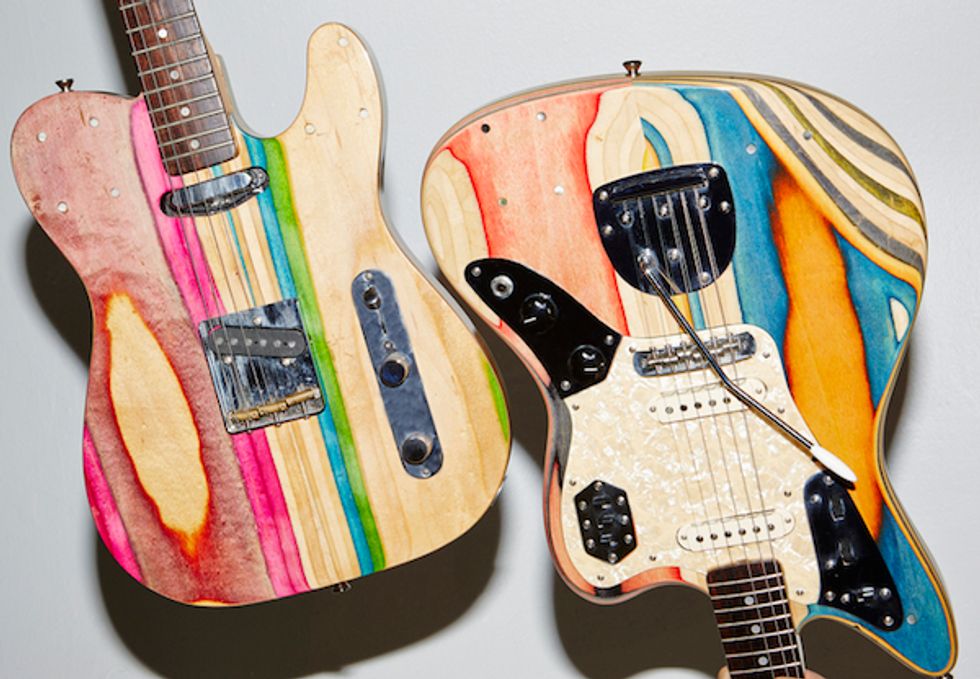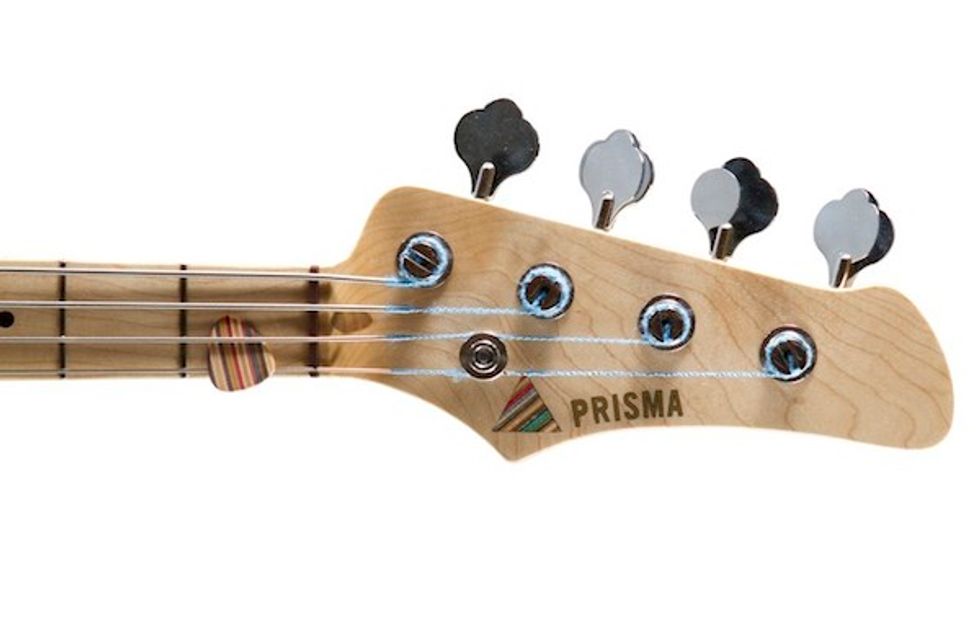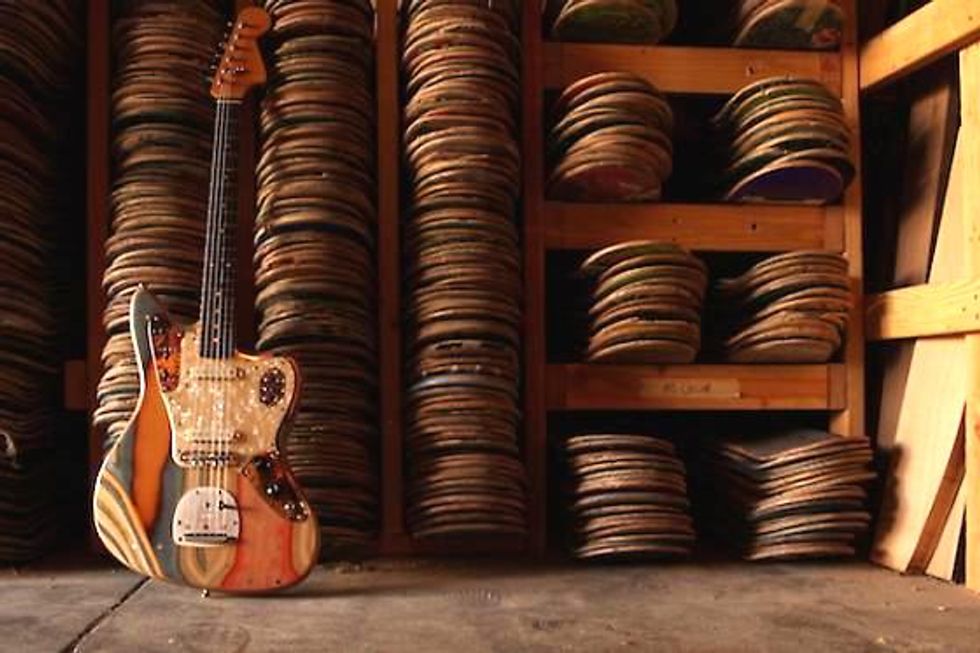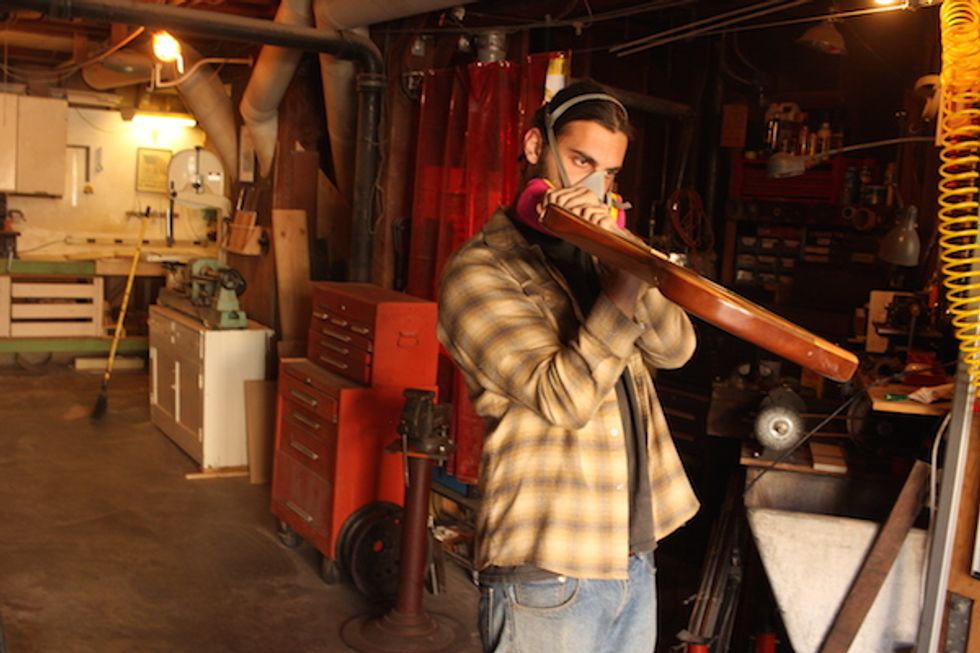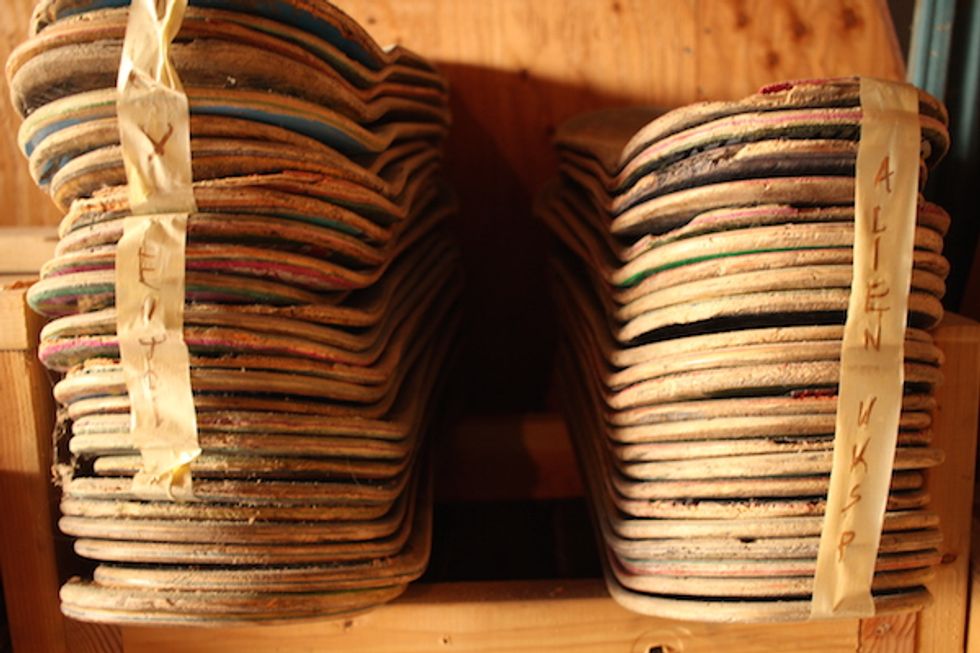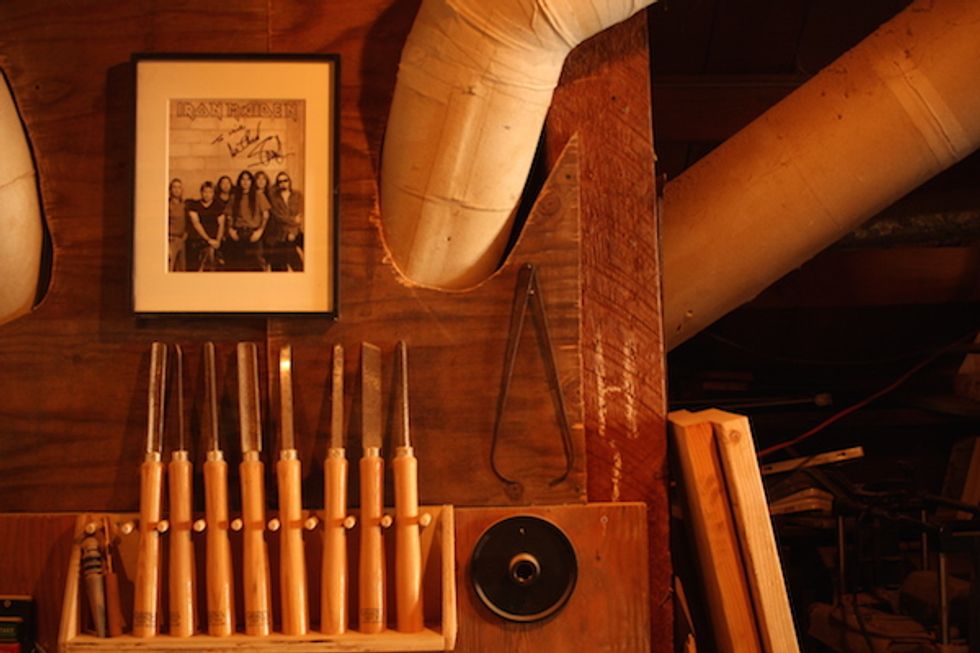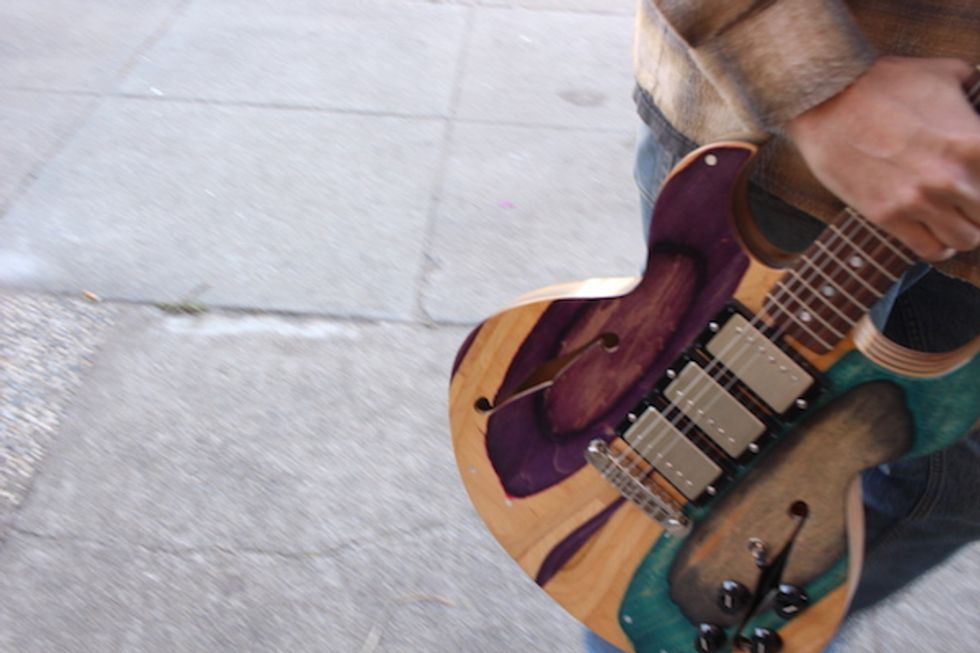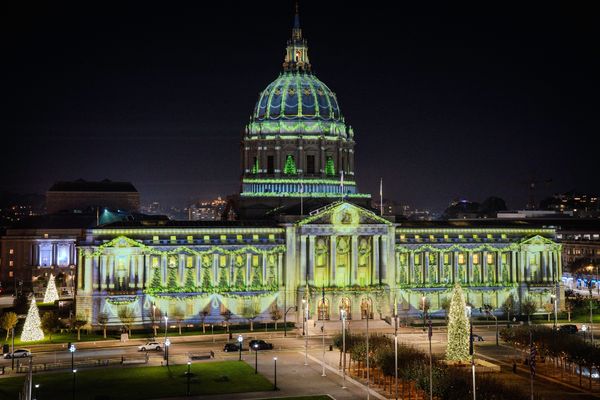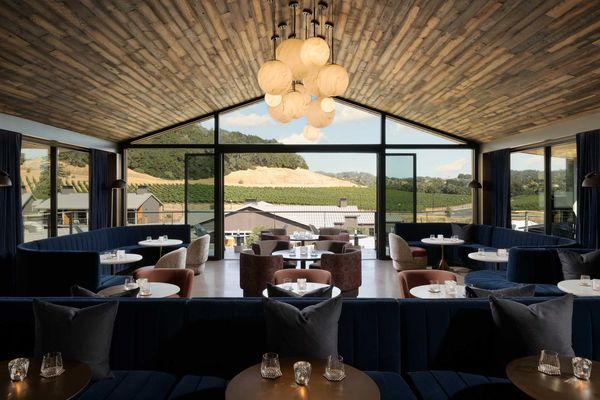(Photography by Joseph Jafaari)
It wasn’t quite an accident; it wasn’t quite on purpose, either. At least that’s the way Nick Pourfard explains how he was able to achieve the strikingly unique colors in the electrical guitars he designs for his business, Prisma Guitars.
But unique isn’t quite accurate in describing Pourfard’s guitars, either. Saying they're like snowflakes or fingerprints—never one the same—would do them more justice. The secret? They are made from recycled skateboards.
(Photo courtesy of Prisma Guitars)
“Just being a skater, you know that the colors [of a skateboard] go all the way through,” he says. “I figured, what if I could just totally make a normal guitar, shape-wise, and sound-wise?”
Pourfard, 23, has been making guitars for close to four years now, though he started his business just one year ago, while balancing his studies at San Francisco State University.
He's just getting started, but the San Diego native has already found a bit of success: His first customer was iconic skater Justin Figueroa, who also plays in the band Harsh Toke. And he even built a guitar for Steve Harris from Iron Maiden. In lieu of hanging up his business' first dollar, Pourfard hung an autographed photo from Harris right above one of his woodworking stations.
“In my dreams, he would play it on stage,” he laughs.
Working out of his garage in the Sunset with the childhood friend Michael Svendsen (23), who taught him how to make half pipes, Pourfard is constantly being stopped by neighbors who like to peek in to see what he’s making next. Within a half-hour, three people peered in at one model hanging to dry, glistening with blues, purples and greens against a backdrop of plywood and concrete.
And the same reaction happens on stage, says the maker who, when he saw one of his guitars in a performance, couldn’t help but notice the crowd in awe. “They’re so different, you can just see people’s reactions. How many people who don’t know anything about instruments comment on the guitars?”
Pourfard is tightlipped about the design process, having been copycatted before. He continues to expand on different ideas, using as much time and as many resources as he possibly can on campus to learn new techniques. So far, he’s been able to control the patterns of each guitar, even making one with multi-colored pinstripes. Soon, he plans to create an acoustic guitar.
(Photo courtesy of Prisma Guitars)
“The whole point of it is to see what crazy colors come out,” he says. “But now that we’ve got one method down, we’re trying out new things and how to work with patterns.”
There may come a day when Pourfard must expand to a larger warehouse. But until then, he’s content working on a few projects here and there, and watching Svendsen tinker with his motorcycles in the carport. “If I could get enough people interested in the guitars and get a shop without neighbors and roommates, then great,” he says. “Honestly, the best part is there are no rules. We get to just hang out all day.” // Prisma Guitars (Sunset), prismaguitars.com, instagram.com/prismaguitars




